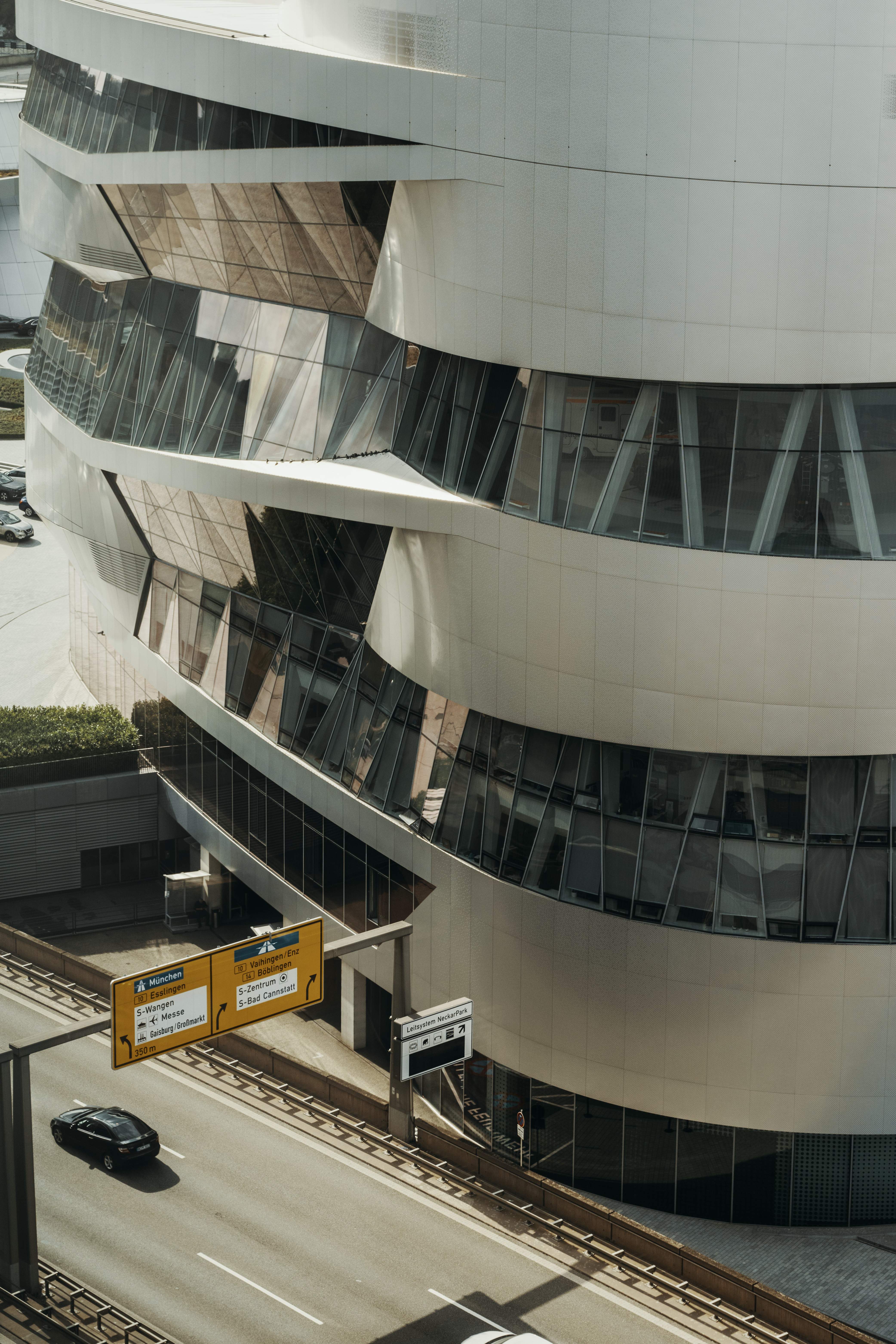Ola Källenius / Stuttgart
Driving force
The chairman of the board at Mercedes-Benz tells us why the brand must lead the charge towards electrification and automation.
The boards of car companies around the world are questioning how they navigate the road ahead as the need to tackle climate change makes them the focus of ever-increasing scrutiny and often public ire. Indeed, most of these businesses now avoid describing themselves as car companies at all, preferring to be considered as mobility or technology brands. Yet despite the push towards driverless vehicles and car-sharing platforms, many people still have a car – and enjoy driving it too. Ola Källenius is the chairman of the board of management at Daimler and in the same role at Mercedes-Benz, where it’s his task to bring cars to market that deliver on the company’s luxury heritage, while also rapidly moving its marques to full electrification. At Mercedes-Benz’s HQ in Stuttgart, the 52-year-old Swede explains why he’s confident about the future of the company, how G-Wagen owners constitute a tribe of their own and why electric cars have a blue glow.


How do you define your business? Are you luxury? Mobility? Are you a digital company with wheels?
We want to build the world’s most desirable cars. So we are a car company at our core.
And you’re happy to still say that when so many automotive CEOs want to talk about transformation?
Yes, we’re a car company. We’re proud to be a car company. We get people from A to B. And we’re Mercedes so we get people from A to B in style. Of course, the auto industry is in transformation towards zero-emission electrification; the car is not a mechanical island cut off from the rest of the world. It’s connected. The car is going autonomous. We have a technological revolution going on in the auto industry right now. We’re reinventing the original invention by our founding fathers.
Mercedes has many brands under its umbrella but when it comes to the driving experience, I see two. Has that always been the plan rather than being a luxury group charged with 30 or 40 brands?
Mercedes-Benz is a combination of a luxury and a technology company. Its founders broke new ground; it’s the inner unrest of the engineer to always invent something new. Now, 135 years down that road, the soul of our brand is known by everyone who works here. So we’re not trying to collect a bunch of brands. If you look at our strategy, everybody knows that Mercedes-Benz is the master brand but we also have some interesting tribes in our so-called sub-brands: amg for performance luxury; Maybach, for sophisticated, not in-your-face luxury; then we have G [makers of the G-Wagen].
Is that a tribe?
That’s a tribe. It’s a worldwide phenomenon. G stands for adventure. It’s the ultimate go-anywhere car but G transcends all segments and all marketing logic. If you’re in, you’re in – and you love it. And G is going electric too, so that’s pretty cool. The newest brand in our tribe, EQ, stands for electric intelligence, which is this journey into electrification that we are committed to. Within the decade we want to convert the company from being based predominantly on combustion-engine technologies to being 100 per cent electric, where market conditions allow, and to be a dominant electric company.
Just on EQ, why is it that everything associated with electrification has a blue aura around it?
If you watch the first commercial for the eqc, which was the first car in the EQ family, it’s a short clip with The Weeknd. You know, he launched his “Blinding Lights” song with that. At the end, somebody asks him, “Oh, wow, you’re driving an electric car?” And his answer is: “No, I’m driving a Mercedes-Benz.” So I totally understand where you’re coming from. And, of course, it’s a Mercedes-Benz and it just happens to be electric. But for those not in the early adopter category, you need a little bit of an additional hook, where you get people in and say, “I’m doing something different.” But as we go through this journey, that will just be the new normal.
Do you think that the push for electrification has been too quick when often the infrastructure is not yet in place?
It’s true that the build-up of the infrastructure around the world is hugely important for the speed of adoption. And we have to put together a plan where, gradually, we turn the whole world into a network of charging stations so that the convenience factor of mobility doesn’t get lost. People don’t want to lose convenience. But I would like to take a step back. What’s going on here? Why are we doing this? We are doing this because climate change is real. We are doing this because signing up to the Paris Agreement is the right thing to do. We must do this. We have to replace the energy source. For cars, the natural choice is electricity produced in a co2-free, renewable way. I would almost argue that from a climate change point of view we are not going fast enough. If we, as a car manufacturer, are a little bit ahead of the infrastructure then we put pressure on the system downstream. We recently had a meeting here with Angela Merkel and her government to talk about how we’re doing in Germany and how we can pick up some speed.
Because of the move to electric, can the automotive industry breathe a little sigh of relief? We’re in a situation where the car often seems to be the devil. I’m wondering if this narrative can change?
Most people, if you take away the individual choice and individual freedom [of the car], would immediately realise that they want to have it back. So I strongly believe in the mobility of the future. People are not going to move less; they’re going to move more. I don’t think we have an option where we say, “Let’s abolish mobility.” On the transport side, we’re the world’s biggest lorry and bus maker. The whole basis for an economy is based upon transport. But there has been a side effect. And we cannot neglect the side effect. And the side effect has been co2 and the consequences of co2.
We will have smarter traffic in the future. Through things such as crowd intelligence and artificial intelligence we can avoid unnecessary traffic jams. So the driving experience could not only be clean and with zero emissions, it could also be more enjoyable. There’s so much more to come from this original invention.
Even now, we’re about to certify the first true level-three system for kind of a highway traffic-jam pilot, where you can push a button and, in some circumstances, the computer takes over. It actually drives you so that you are not responsible in that situation. Then you get the greatest gift of all: you are given time back. And you can do whatever you please with it. Maybe you want to relax a little bit; maybe you want to check your messages; maybe you want to read. So it’s about to get even better.
Do you see a sector without automation?
I enjoy driving. We’re going to have both. But there are some situations where maybe you don’t want to drive. What’s not really talked about so much is that we still have, unfortunately, more than a million traffic fatalities every year worldwide, which is an unbelievable number. Yet it is a statistic that we, as a society, have become used to. And in 999 cases out of 1,000, it is human error that causes an accident.
Are there any lessons that you’ve learned during the past 18 months?
The first lesson is that the unique and fantastic Mercedes team came together. So it’s one of those things where an external event happens that you were not expecting, even though pandemic scenarios had been discussed. So it was about protecting people, protecting your staff, protecting customers and everybody around us. This has worked really well – a 300,000-person company actually becomes a family again. So from that point of view, it brings the company to a new level.
In terms of how you keep the brand and brand spirit alive, one of the other unique things for Mercedes-Benz is that most people who work at the company actually work here for their whole careers. I’ve been here since I left university. I started here. I came here because of the brand and I have never looked back. So it’s in the blood. It’s in the dna and you don’t lose any of that – even after 20 months of video conferencing.
Monocle 24 radio
‘The Chiefs’ with Tyler Brûlé
To hear the full interview with Ola Källenius, download Monocle 24’s podcast, ‘The Chiefs’.


